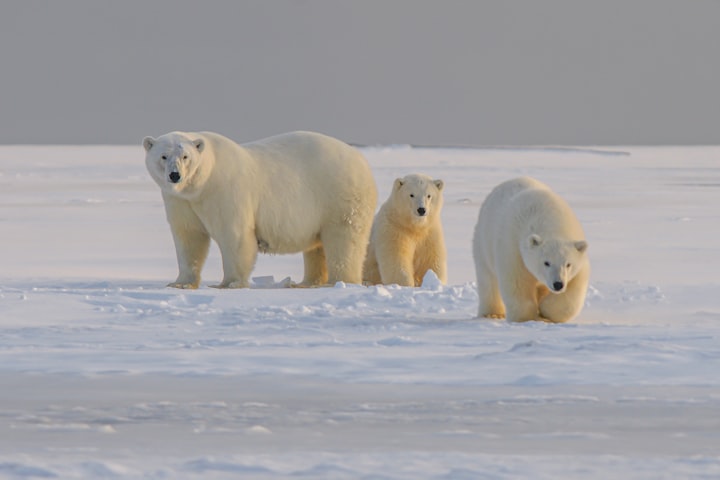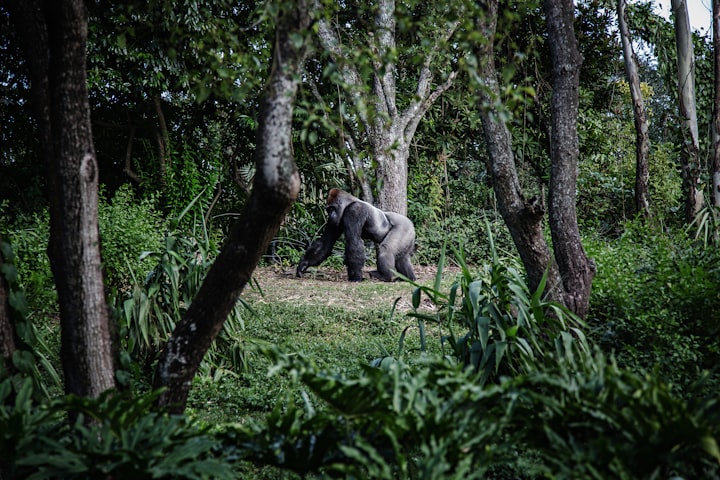
Polar bears
Polar bears are one of the most iconic animals of the Arctic region. These massive predators are famous for their white fur and their ability to survive in the harsh, icy environment of the Arctic. In this article, we'll explore some of the fascinating facts about polar bears and why they're so important to the Arctic ecosystem.
Polar bears are the largest land carnivores in the world. Adult males can weigh up to 1,500 pounds and stand over 10 feet tall on their hind legs. Females are smaller, typically weighing between 330 and 650 pounds. Their white fur helps them blend in with the snow and ice of their environment, making them excellent hunters.
Polar bears are apex predators, which means they're at the top of the food chain. They primarily eat seals, which they catch by waiting for them to surface through holes in the ice. They're patient hunters and can wait for hours by a seal hole, waiting for their prey to appear. When they do catch a seal, they'll eat the blubber and leave the rest for other animals to scavenge.
Despite their size and strength, polar bears are facing many threats. Climate change is causing the Arctic ice to melt at an alarming rate, which is making it harder for polar bears to hunt and survive. As the ice melts, the bears have to swim longer distances to find food, which can be exhausting and dangerous. Additionally, some polar bears are turning to eating birds and bird eggs when they can't find seals, which isn't a sustainable food source.
In addition to climate change, polar bears are also threatened by hunting and pollution. In some parts of the world, polar bears are still hunted for their fur and other body parts, even though it's illegal. Pollution is also a problem, as toxic chemicals like PCBs are accumulating in the Arctic food chain and harming polar bears and other animals.
Polar bears are important to the Arctic ecosystem in many ways. They help regulate the populations of their prey, like seals, and are also an important cultural symbol for many indigenous communities in the Arctic. Additionally, polar bears are a major draw for tourists, which can bring in important revenue for local economies.
To help protect polar bears and their habitat, there are several things we can do. One of the most important is to reduce our carbon footprint and slow down climate change. This can be done by using renewable energy, reducing our use of fossil fuels, and advocating for policies that support a cleaner environment. We can also reduce pollution by properly disposing of hazardous materials and supporting laws that regulate the use of harmful chemicals.
Another way to help protect polar bears is to support conservation efforts. There are many organizations working to protect polar bears and their habitat, such as the World Wildlife Fund and Polar Bears International. By supporting these organizations through donations or volunteering, we can help ensure that polar bears continue to thrive in the Arctic.
In conclusion, polar bears are majestic creatures that are well-adapted to the harsh environment of the Arctic. As apex predators, they play a crucial role in regulating the populations of their prey and are an important cultural symbol for many indigenous communities. However, they are facing significant threats due to climate change, pollution, and hunting. To ensure that polar bears continue to thrive in the Arctic, it's essential that we take action to reduce our carbon footprint, support conservation efforts, and advocate for policies that protect the environment. By doing so, we can help preserve these magnificent animals for future generations to appreciate and enjoy.






Comments
There are no comments for this story
Be the first to respond and start the conversation.